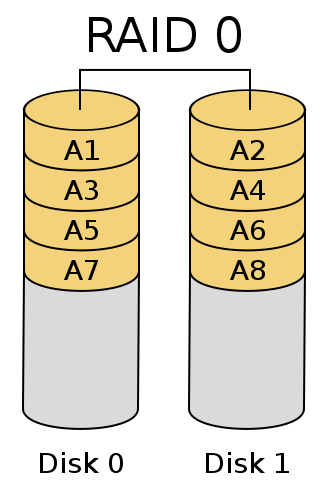New
#11
Whichever type of array you use, you need to ensure that you have a suitable driver available if the Windows 7 disk doesn't have a suitable driver included. Vista did a good job of including these drivers, and Windows 7 did even better, but there will probably be hardware that isn't recognised without a 3rd party driver. Once that has been loaded, the array will appear as a single disk drive. All commands will be sent, as though to a single drive. The hardware (RAID controller) intercepts these commands and then passes them to the individual drives in the appropriate manner.


 Quote
Quote
